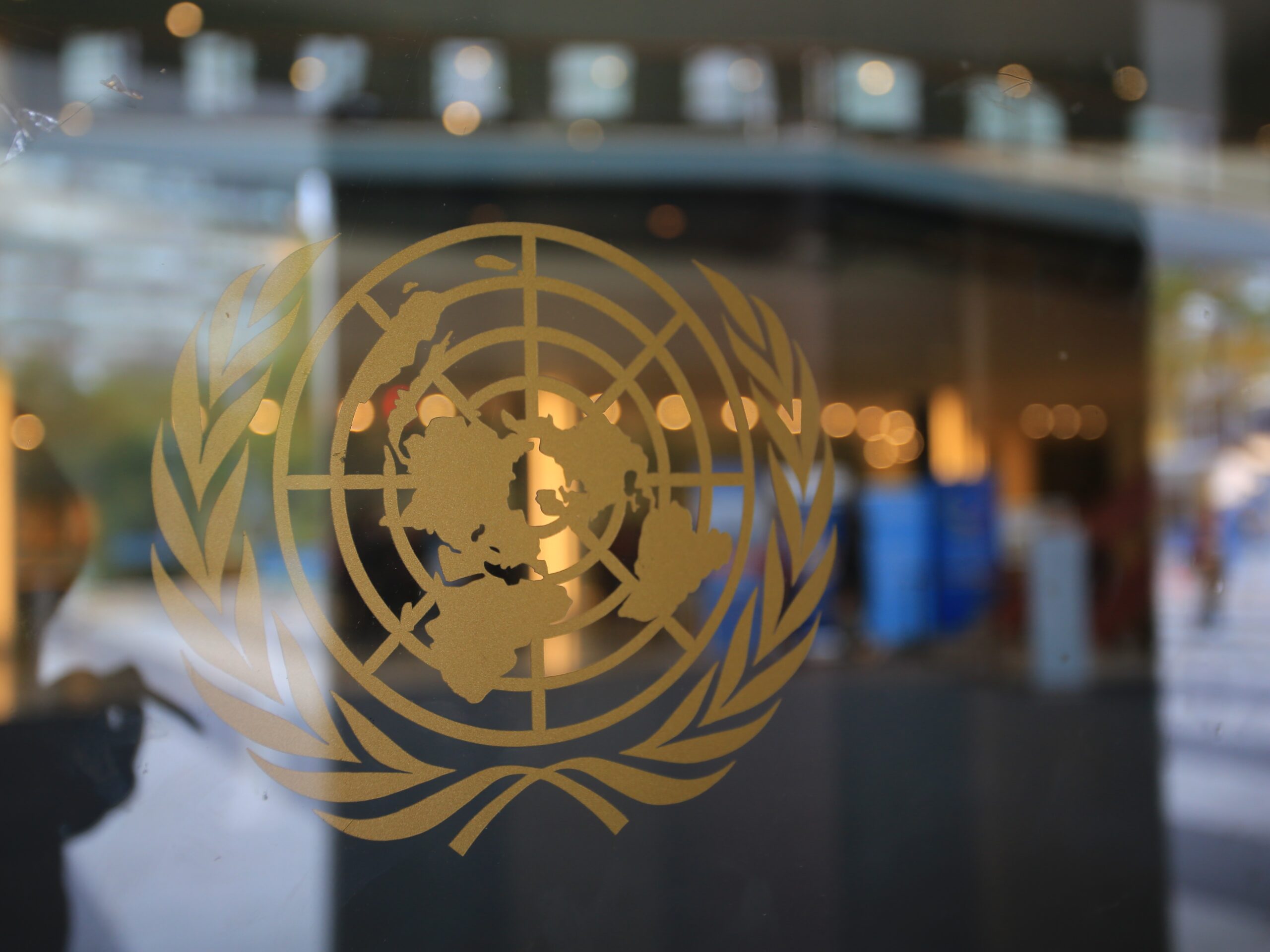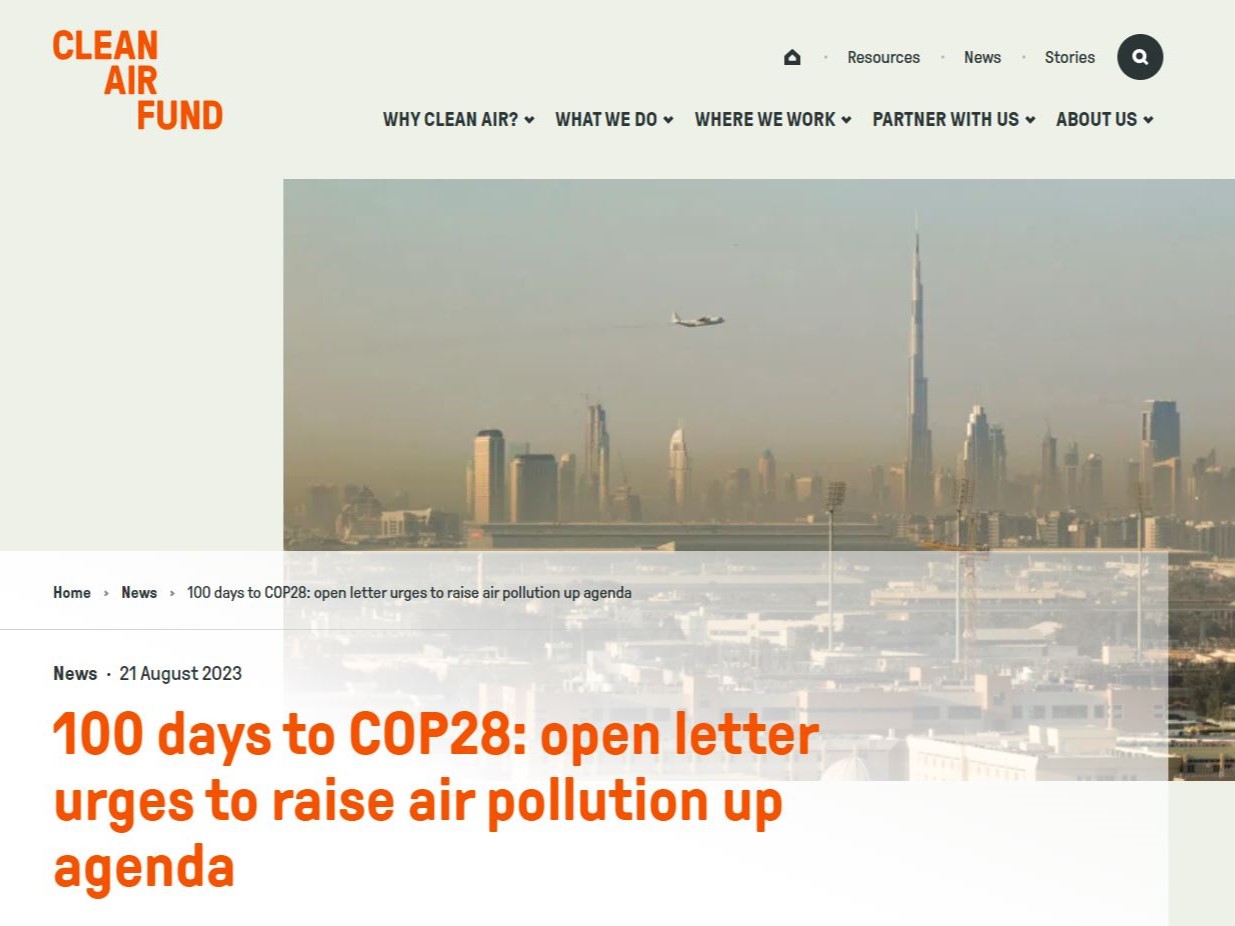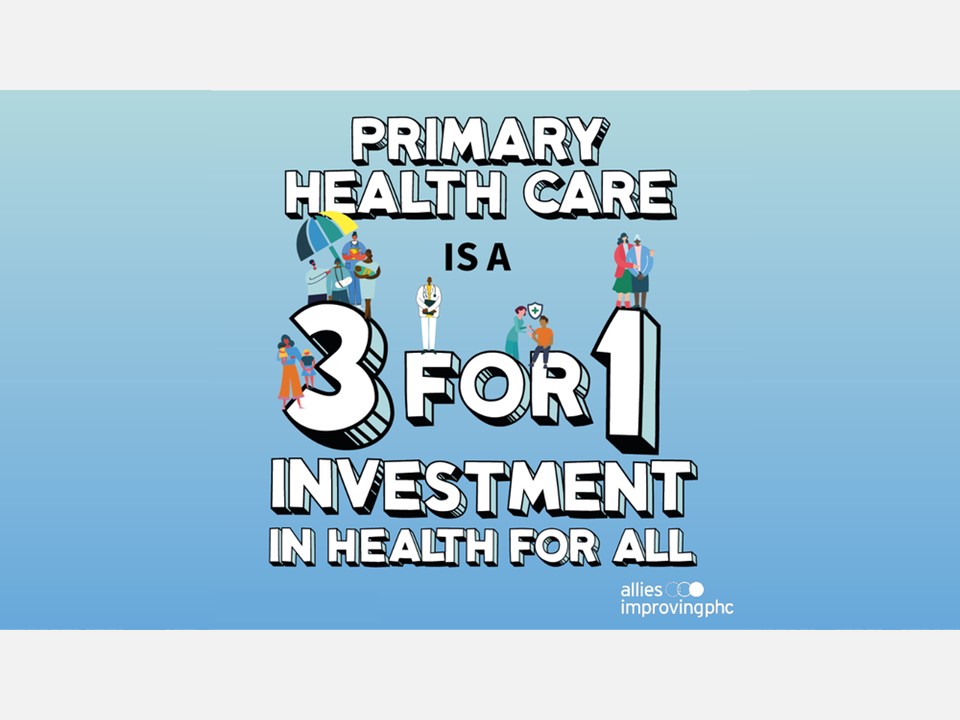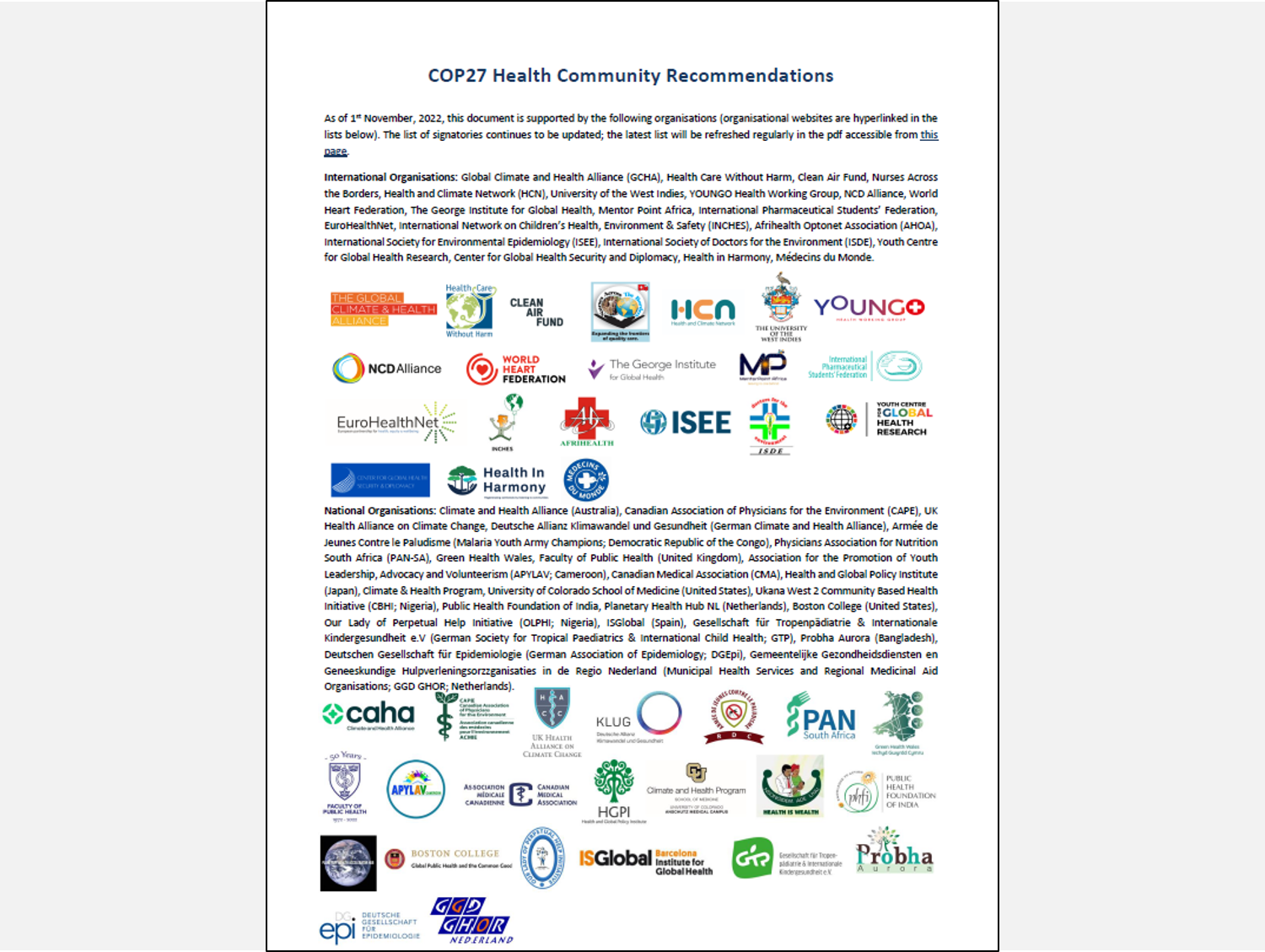[Announcement] HGPI Joins Call for “Global Health and Medical Community Unite To Demand End Fossil Fuel Dependency at COP28” (November 1, 2023)
date : 11/22/2023
Tags: Planetary Health
![[Announcement] HGPI Joins Call for “Global Health and Medical Community Unite To Demand End Fossil Fuel Dependency at COP28” (November 1, 2023)](https://hgpi.org/en/wp-content/uploads/sites/2/ph-20231101-top.jpg)
On November 1st, 2023, Health and Global Policy Institute (HGPI) Planetary Health Team signed “COP28 Open Letter on fossil fuels from the Global Medical and Health Community” ahead of the 2023 United Nations Climate Change Conference (COP28).
The Paris Agreement that was adopted in COP21 held in France in 2015 acknowledges the relevance of the right to health to climate action. To date, integration of health issues into policymaking and monitoring under the United Nations Framework Convention on Climate Change (UNFCCC) has been insufficient, despite The Intergovernmental Panel on Climate Change (IPCC) warnings of human health impacts since 1990. Climate-sensitive health threats already cause millions of avoidable deaths annually, undermining the right to health and a healthy environment, and driving severe productivity losses.
This year at COP28 in the United Arab Emirates, a Health Day (3 December) has been designated for the first time to concentrate discussions on health. As signatories of this letter, we, including HGPI, endorse the efforts of countries to prioritize health at COP28.
However, we express our concern that the draft Declaration on Climate Change and Health, which is set for adoption, does not adequately acknowledge the role of fossil fuels in causing climate change. On 25 October this year, over 200 medical journals, including the British Medical Journal, The Lancet, Journal of the American Medical Association, Australian Medical Journal, East African Medical Journal, Indian National Medical Journal and Dubai Medical Journal, communicated to the World Health Organization (WHO) that climate change and biodiversity loss constitute a global health emergency. A joint editorial “Time to treat the climate and nature crisis as one indivisible global health emergency,” was concurrently published urging the WHO to declare a state of emergency, emphasizing that climate change and biodiversity loss have escalated to the point of being a global health crisis.
In this letter, we urge the COP28 Presidency and all national leaders to:
- Commit to and work towards achieving the health and well-being of all people through our global health and health sector efforts. A safe and stable climate is essential for this. The Paris Agreement enshrined the ‘right to health’ as a fundamental obligation in combating climate change. However, communities, health professionals, and health systems worldwide are already grappling with the extraordinary impacts of climate change.
- Recognize that extreme weather events induced by climate change are becoming more frequent and severe. Many countries are experiencing health impacts from extreme heat, unprecedented storms, flooding, food and water shortages, wildfires, and displacement of people.
- Address the root cause of the climate crisis – the continued extraction and use of fossil fuels such as coal, oil, and gas – for COP28 to truly become a ‘Health COP’.
- Commit to accelerating the phase-out of fossil fuels as the definitive path to health for all.
To read the original open letter, please click here.
If your organization would like to endorse the letter, please use this form.
Please refer to this detailed background note for evidence.
HGPI has prepared a Japanese translation of this proposal.
This letter was coordinated by Health Care Without Harm and Global Climate and Health Alliance on behalf of the climate and health community.
The letter, supported by organisations that represent 46.3 million health professionals such as the World Medical Association, World Federation of Public Health Association and International Council of Nurses, outlines the critical need to protect human health by reducing dependence on fossil fuels, rapidly investing in clean energy technology and reducing air pollution – all from the perspective that public health will benefit from this rapid transition. This letter is also endorsed by leading medical journals such as the British Medical Journal.
Top Research & Recommendations Posts
- [Policy Recommendations] The Path to a Sustainable Healthcare System: Three Key Objectives for Public Deliberation (January 22, 2026)
- [Research Report] The 2025 Public Opinion Survey on Healthcare in Japan (March 17, 2025)
- [Research Report] Perceptions, Knowledge, Actions and Perspectives of Healthcare Organizations in Japan in Relation to Climate Change and Health: A Cross-Sectional Study (November 13, 2025)
- [Policy Recommendations] Reshaping Japan’s Immunization Policy for Life Course Coverage and Vaccine Equity: Challenges and Prospects for an Era of Prevention and Health Promotion (April 25, 2025)
- [Research Report] The 2023 Public Opinion Survey on Satisfaction in Healthcare in Japan and Healthcare Applications of Generative AI (January 11, 2024)
- [Research Report] AMR Policy Update #4: Cancer Care and AMR (Part 1)
- [Public Comment Submission] “Assessment Report on Climate Change Impacts in Japan (Draft Overview)” (December 24, 2025)
- [Policy Recommendations] Developing a National Health and Climate Strategy for Japan (June 26, 2024)
- [Research Report] The Public Opinion Survey on Child-Rearing in Modern Japan (Final Report) (March 4, 2022)
- [Research Report] Survey of Japanese Physicians Regarding Climate Change and Health (December 3, 2023)
Featured Posts
-
2026-01-09
[Registration Open] (Hybrid Format) Dementia Project FY2025 Initiative Concluding Symposium “The Future of Dementia Policy Surrounding Families and Others Who Care for People with Dementia” (March 9, 2026)
![[Registration Open] (Hybrid Format) Dementia Project FY2025 Initiative Concluding Symposium “The Future of Dementia Policy Surrounding Families and Others Who Care for People with Dementia” (March 9, 2026)](https://hgpi.org/en/wp-content/uploads/sites/2/dementia-20260309-top.png)
-
2026-02-05
[Registration Open] (Webinar) The 141st HGPI Seminar “Current Status and Future Prospects of Korea’s Obesity Policy: Voices of People with Lived Experience in Policy Promotion” (March 3, 2026)
![[Registration Open] (Webinar) The 141st HGPI Seminar “Current Status and Future Prospects of Korea’s Obesity Policy: Voices of People with Lived Experience in Policy Promotion” (March 3, 2026)](https://hgpi.org/en/wp-content/uploads/sites/2/hs141-top-1.png)
-
2026-02-06
[Research Report] AMR Policy Update #5: Cancer Care and AMR (Part 2)
![[Research Report] AMR Policy Update #5: Cancer Care and AMR (Part 2)](https://hgpi.org/en/wp-content/uploads/sites/2/HGPI_20260204_AMR-Policy-Update-5.png)








